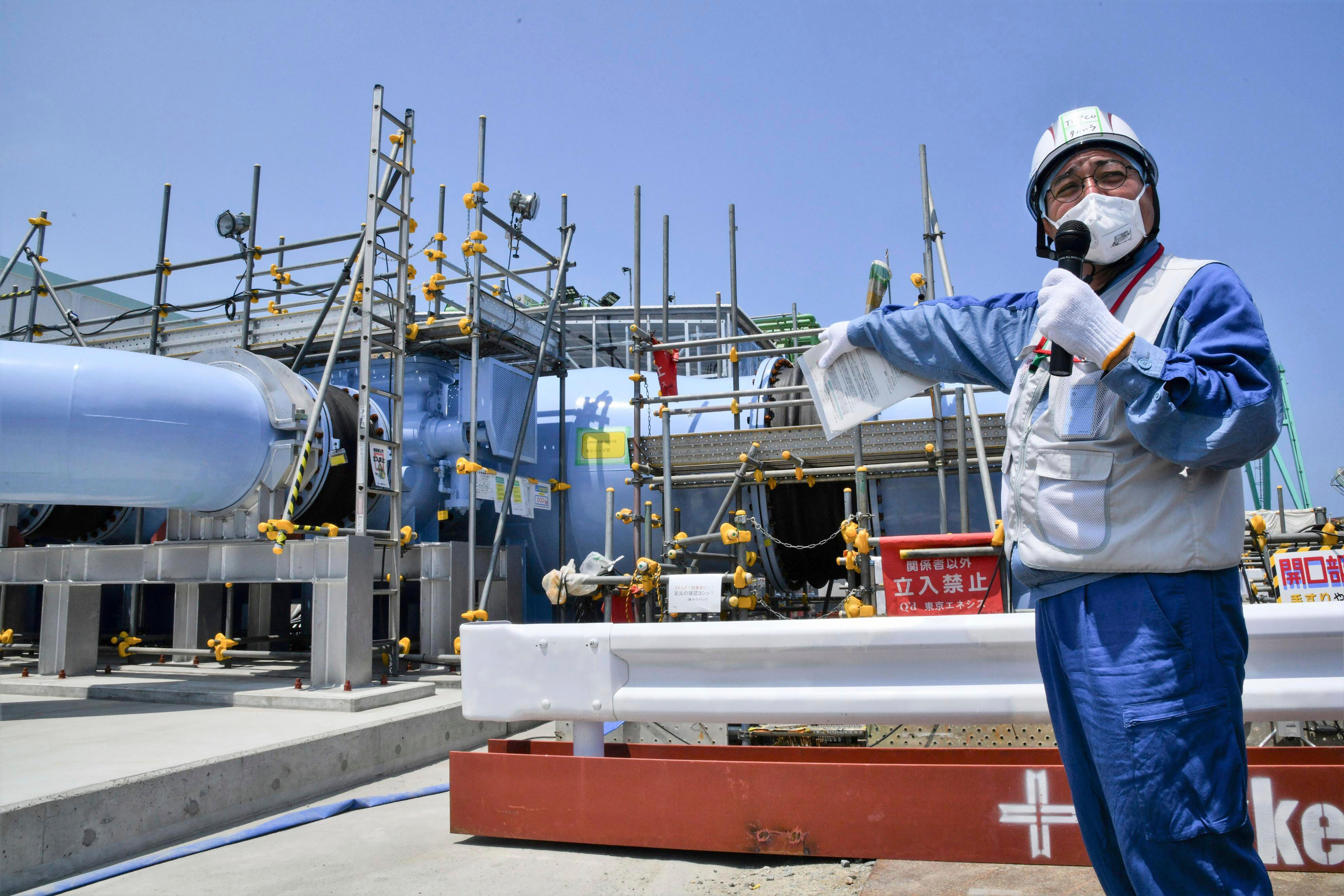Ripples of Fukushima: Hong Kong to ban Japanese products from areas that discharge radioactive water
A top official in Hong Kong says the city would immediately ban the import of aquatic products from 10 prefectures in Japan if it discharges treated radioactive wastewater into the sea

Your support helps us to tell the story
From reproductive rights to climate change to Big Tech, The Independent is on the ground when the story is developing. Whether it's investigating the financials of Elon Musk's pro-Trump PAC or producing our latest documentary, 'The A Word', which shines a light on the American women fighting for reproductive rights, we know how important it is to parse out the facts from the messaging.
At such a critical moment in US history, we need reporters on the ground. Your donation allows us to keep sending journalists to speak to both sides of the story.
The Independent is trusted by Americans across the entire political spectrum. And unlike many other quality news outlets, we choose not to lock Americans out of our reporting and analysis with paywalls. We believe quality journalism should be available to everyone, paid for by those who can afford it.
Your support makes all the difference.Hong Kong would immediately ban the import of aquatic products from Fukushima and other Japanese prefectures if Tokyo discharges treated radioactive wastewater into the sea, a top official in the city said Wednesday.
Secretary for Environment and Ecology Tse Chin-wan said although the wastewater from the damaged Fukushima nuclear plant would be treated before discharging into the Pacific Ocean, any errors in the process would significantly affect ecology and food safety. The concern stems from Japan's U.N.-endorsed, but controversial, plan to gradually release the treated water.
“Our assessment shows prefectures near Fukushima have higher risks, so we are now taking a responsible way for our residents,” he told reporters at a briefing.
The 10 affected territories are Tokyo, Fukushima, Chiba, Tochigi, Ibaraki, Gunma, Miyagi, Niigata, Nagano and Saitama, he added.
A massive earthquake and tsunami in March 2011 destroyed the Fukushima Daiichi nuclear plant’s cooling systems, causing three reactors to melt and releasing large amounts of radiation. The tanks storing the water used since the accident to cool the reactor cores will reach their capacity in early 2024.
In 2021, Japan’s government announced plans to gradually release the treated — but still slightly radioactive — water following its dilution to what it says are safe levels. Japanese officials say the water, currently stored in about a thousand tanks at the plant, needs to be removed to prevent accidental leaks in case of an earthquake and to make room for the plant’s decommissioning.
Last week, the U.N. nuclear agency endorsed the plan, saying it meets international standards and the environmental and health impact would be negligible.
But the plan has faced fierce protests from local fishing communities concerned about safety and reputational damage. Neighboring countries, including South Korea, China and Pacific Island nations, have also raised safety concerns.
In Hong Kong, the import of certain products — such as fruits and vegetables — from Fukushima is currently banned. Other products such as meat and poultry from there are allowed in if they come with a radiation certificate.
The import of many food products from four other Japanese prefectures immediately south of Fukushima — Gunma, Ibaraki, Tochigi and Chiba — will also have to be accompanied with radiation certificate.
For the planned policies announced Wednesday, Tse said the government will be scientific and review data. If the situation is safe, the government wwill consider relaxing its restrictions, he said.
Last year, the major food imports from Japan amounted to about 2% of the total food supply in Hong Kong, official data showed. Although Hong Kong is not highly dependent on Japanese food products in terms of quantity, many residents love Japanese food and there are many Japanese restaurants in the city.